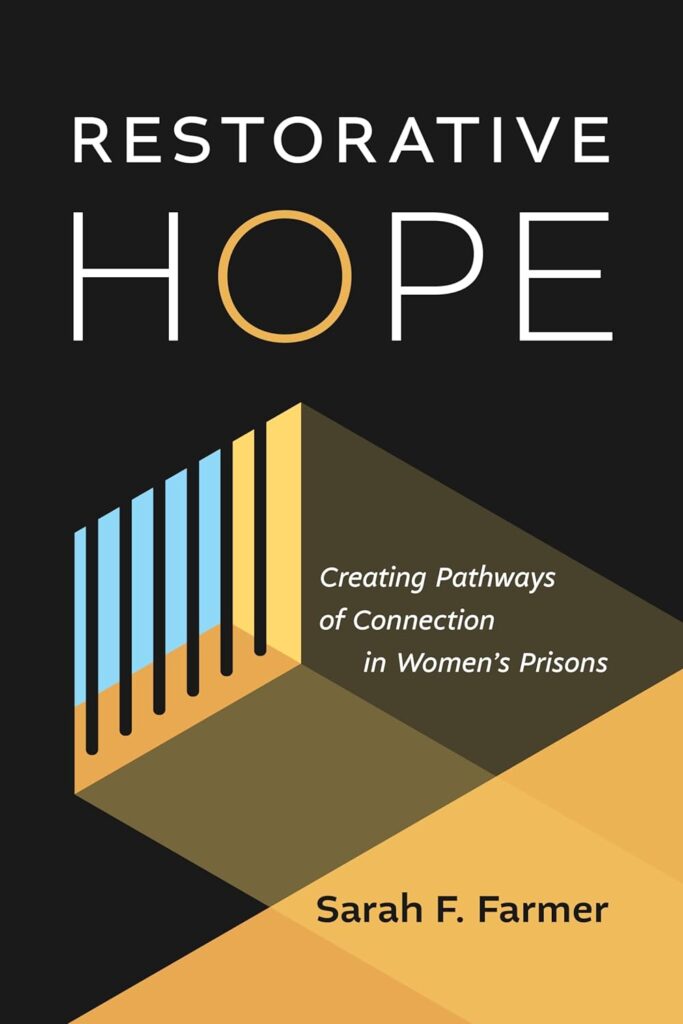Having Hope in the Darkest of Places
Inspired by her life of ministry and service, Sarah Farmer presents a model for fostering agency and perseverance among incarcerated women in Restorative Hope: Creating Pathways of Connection in Women’s Prisons. Examining moments of both suffering and joy amid the circumstances of these women, Farmer platforms their voices and experiences to argue for the value of theological programs in their lives. Honest and with great analytical depth, Farmer approaches the complicated and often tragic circumstances- things like “chronic and infectious disease, reproductive health challenges, substance abuse, sexual victimization, poverty, unemployment, housing insecurity, maternal incarceration, shame and stigma, grief, trauma, diminished faith”- that inform women’s incarceration. With a focus on hope and justice, and written with the knowledge that only direct experience provides, Restorative Hope is an important pedagogy and narrative for serving communities in the most desolate of conditions.
Sarah F. Farmer is the Associate Director at the Wabash Center for Teaching and Learning in Theology and Religion. She was previously a professor of community development and practical theology at Indiana Wesleyan University and an associate research scholar and lecturer at Yale Divinity School. She also worked with the Youth Hope-Builders Academy at Interdenominational Theological Center and founded Youth Arts and Peace Camp in Chester, Pennsylvania.
Reviews and endorsements of the publication include:
“By connecting mobility to hope, Farmer names something fundamental about the prison —restricting movement also restricts hope. As readers learn firsthand how incarcerated women nurture hope in a place characterized by restraint, we are invited into a shared project with them. We may get proximate and cultivate spaces of hope where resilience is strengthened, identities are reclaimed, and meaningful connections are made. Farmer’s book is itself an instigator of hope, moving us to reclaim our own agency in the face of a seemingly unmovable reality.”
-Jennifer McBride, author of You Shall Not Condemn: A Story of Faith and Advocacy on Death Row
“Sarah Farmer listens brilliantly to those who are rarely heard—women who are or have been incarcerated. She listens with a depth of theological analysis and emotional intelligence unmatched by any other text on women in prison that I have ever read. This is one of the most beautiful accounts of a practice of hope that we have. If you read it, you might come to learn how to listen as well as Sarah Farmer. This book will be read for generations.”
– Willie James Jennings, Yale Divinity School
“Read the preface of this wonderfully written and carefully researched book by my former colleague and you will be hooked. As you read further, you will see hope come and spread its wings in some of our most desolate social spaces—prisons. A compelling practical theology and pedagogy of restorative hope.”
– Miroslav Volf, Yale Divinity School
For more information on the publication, click here.

